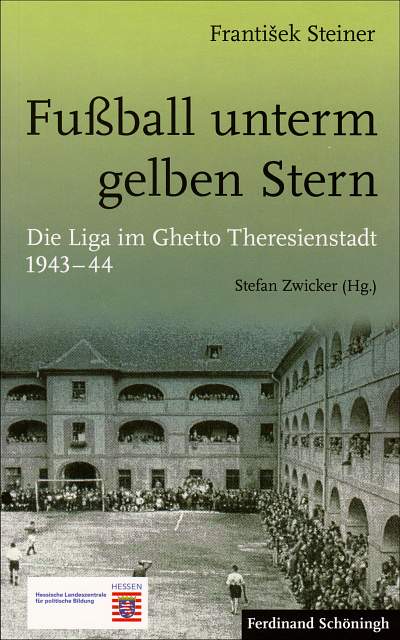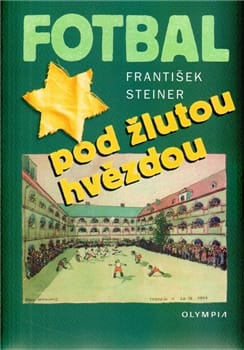Details
Ref: The Jewish Community and Celtic
wrt: Jewish Celtic fans, Judaism, Jewish players and staff, Jewish people in Scotland, Israel
Note: the following article and any parallel articles are apolitical on issues over Israel and the Middle East, and any discussions on relevant topics are best left for a more appropriate forum.
Brief overview
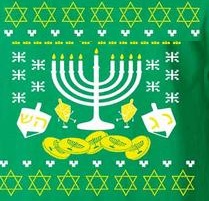 The Scottish Jewish population has always been a very small community in numbers (0.1% estimate of Scottish population in recent census), and compared to other places, their community has generally been less conspicuous than for example in Manchester or London.
The Scottish Jewish population has always been a very small community in numbers (0.1% estimate of Scottish population in recent census), and compared to other places, their community has generally been less conspicuous than for example in Manchester or London.
Nevertheless they have been a well-integrated community, with synagogues in Glasgow and Edinburgh, and over time they have played their role in the development of their local communities.
A wonderful measure of their successful integration includes that Celtic have had a director on the board who was of the Jewish faith from the local community. Ian Livingston was raised in Glasgow and had long followed Celtic attending matches (a long term season ticket holder) before taking up his role on the board for ten years until stepping down in 2017.
He was the fourth generation son of Polish-Lithuanian Jews who arrived in Scotland from over 120 years ago beforehand. A timescale not dissimilar to that of the history of Celtic. Possibly the parallel rise of the two communities mirror each other and this was a coming together highlight.
There is also a Jewish Cemetery directly adjacent to Celtic Park in Eastern (Janefield) Necropolis. Dating back to 1855 would also have been very close to the original Celtic Park, highlighting that the two immigrant communities lived in proximity in the East End.
One more notable but admittedly much looser Jewish tie for Celtic is that of legendary reggae singer Bob Marley. Firstly he was a Celtic fan, corroborated by his son and in a meeting between ex-Celtic player Dixie Deans with Bob Marley himself. Secondly, Bob Marley is reportedly of Syrian Jewish descent from his father’s side according to various biographies!
The controversial US politician and diplomat Henry Kissinger – a Jew that escaped Nazi Germany – was an honorary member of the New York Celtic Supporters’ Club, after being given a membership by one of its committee.
The Celtic ethos and Jewish players
At Celtic, there had been historically few Jewish players at the club until the 21st century. This was clearly as the squad was mainly derived from the local talent who were overwhelmingly of the Christian faiths, with international acquisitions only really coming to the fore in the 1990s.
Despite that, Willie Maley was proud to proclaim that the club had fielded players from across differing creeds, including one of the Jewish faith (or at least of Jewish descent). It proved that footballing ability was the prime requisite to play for Celtic.
“It’s not the creed nor his nationality that counts. It’s the man himself.”
Willie Maley
“We have always been a cosmopolitan club since our second year, and we have included in our list of players a Swede, a Jew and a Mohammedan.”
Willie Maley
First Jewish Player at Celtic?
Jerome Solis is believed to be the first Jewish player to play for the Celts (even though it is believed he was at St Aloysius’ College in Glasgow), but some research puts doubt on the claim. Could be he is of at least of part Jewish descent alone rather than it was his practicing religion.
Current investigations have not confirmed his background to confirm if he was Jewish by faith or descent. None of the above negates the theory that he may have Jewish heritage, but as yet nothing confirmed.
To time of writing most Celtic historians believe that Joseph Coen as more likely the Jewish player at Celtic that Willie Maley is referring to in his famous quote. However, from research even he is believed to not have been a practicing member of the Jewish faith but possibly of Jewish descent.
Jewish Players at Celtic
Following the arrival of the colourful Eyal Berkovic to Celtic in 1999, others have followed. For example, briefly Rami Gershon (a loan spell which didn’t work out due to injuries) and then Nir Bitton who was a popular first team regular through the 2010s.
The greater cosmopolitan nature of football has meant that players across global faiths & denominations will be playing together at Celtic.
Notably, there has been a certain bon homie between Israeli Arabs and Jews at Celtic. Eyal Berkovic (Israeli Jewish) recommended Beram Kayal (Israeli Arab) to join Celtic, whilst Nir Bitton (Israeli Jewish) played at Celtic alongside countryman Abd El Hamed (Israeli Arab). That is something to admire.
Ex-Celt Eyal Berkovic was many a time a prickly character in his career, even at Celtic. However, reports from the Glasgow Jewish community are fair on him in that he used to sign autographs and pose for pictures at the Calderwood Lodge school (which was the Jewish primary school) gates. He also is believed to have helped obtain a whole bunch of free tickets to the school for a Celtic game v Hapoel Tel Aviv in 1999. Nice touch, and a respectable show of cross community interaction for Celtic with the Jewish community.
Of all the Celtic players of the Jewish faith, Nir Bitton has had the longest tenure, with children born in Glasgow too, cementing the link. He has been a well liked player and played his part in helping Celtic win major silverware during the golden era in the 2010s. Liel Abada arrived in 2021.
One key game was on 26th December 2021, when in an admittedly injury hit & decimated squad, Bitton & Abada started with the Israeli pair stealing the headlines! Bitton captained the side to give possibly his best performance for Celtic, and scoring the best of the goals on the day with Abada having scored the others others in a 3-1 away victory v St Johnstone in front of just 500 fans in a COVID restricted match. Bitton commented from the heart in the post-match interview: “It’s a privilege for me to captain this club”. Wonderful day for all.
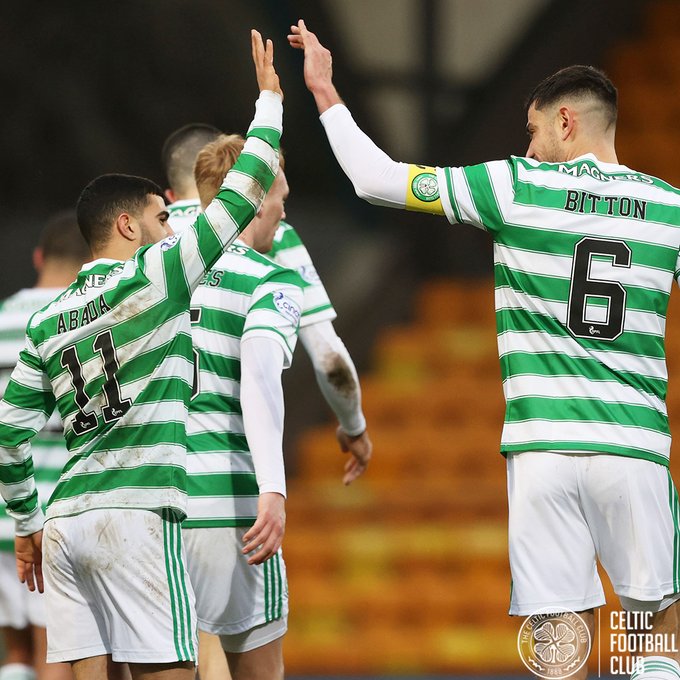
This all has been a welcome progression in the game but also society, and the club on social media posts to the Jewish community its best wishes on days of religious celebration (e.g. Passover).
Charity match in aid of Israeli Refugees
One notable related event came in 1962, when a young and inexperienced Celtic side faced the might of the great Real Madrid in a fund-raising challenge match at Celtic Park on Monday 10th September 1962.
The game was the idea of Glasgow businessman and Celtic supporter Max Benjamin who wanted to raise money for the Jewish National Fund Charitable Trust and the rehabilitation of refugee woman and children from Europe and north Africa.
It was a major coup to attract Real Madrid and all their stars to Glasgow, and a crowd of 72,000 packed Celtic Park to see the likes of Puskas, di Stefano and Gento. Real Madrid won 3-1 with £10,000 raised for charity. A precursor to great European competition nights to come for Celtic.
Antisemitism – unwelcome at Celtic
An import in the 2010s has been ridiculous social media accusations against Celtic that the support is anti-Semitic! It’s complete balderdash and just part of far right populist tactics thrown around by Neanderthals which has been polluting online debate. Best swatted away, and ironically those comments always come from small minded people with narrow self-interest agendas who are hijacking issues for their own ends (e.g. the far right EDL supporters), misusing labels to slander others.
There has been a general empathy for the Palestinian people at Celtic, which has seen supporter displays done in sections at Celtic. However, support for Israeli or Palestinian causes are for discussion outwith of this article, and best left to a more appropriate forum, but people from across the spectrum are welcome at Celtic as long as tolerance is adhered to. That is the Celtic way.
Admittedly, there has sadly been a tiny minority who have bandied around derogatory offensive anti-Semitic remarks. For example Nir Bitton has received offensive remarks from even a few Celtic supporters who are armchair warriors that have overstepped the mark in their demonstration of support for Palestinians. Totally unwarranted and uncalled for, but they don’t reflect the Celtic support or Scotland at all.
Everyone is welcome to Celtic regardless of race, colour or creed. There are supporters from the Jewish and Muslim communities at Celtic, and from across all religions represented in Glasgow.
The support has always demonstrated that it will always back anyone in good faith, and any bigots will be ostracised. With the size of support Celtic have, you’ll inevitably have some ignoramuses, but they’re not welcome.
In 2023, a conflict had started in Israel/Palestine, and tension were high with the Green Brigade ultras notably parading banners etc in support of Palestine. Sadly, this was used to attack Celtic fans, with notably the Israel national manager Alon Hazan branding Celtic fans ‘anti-semitic’, but advised Liel Abada to stay at Celtic and prove the ‘haters’ wrong. He was wrong and pathetic.
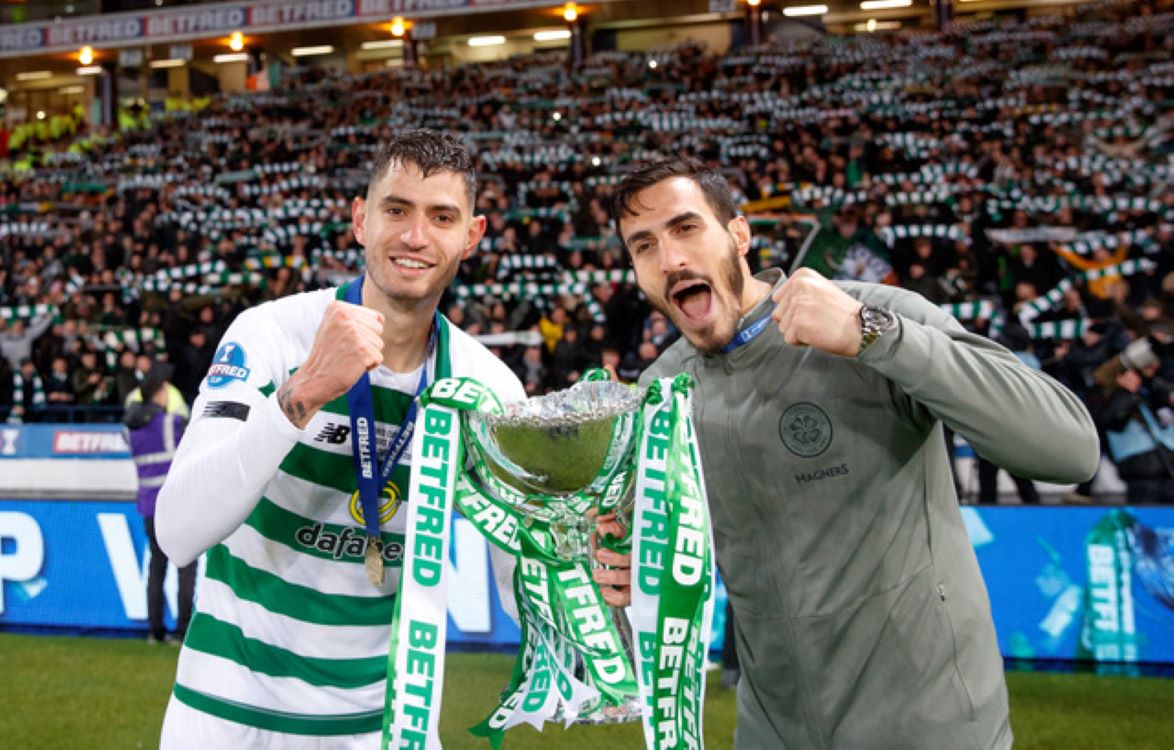
The future
The Jewish community may have played only a small role in the Celtic story, but no less important than others. They are a welcome part of the Celtic history tapestry and another part of the story to take pride in, and the future will see the further development and integration of the Jewish community with the many other groups at Celtic.
Links
- Celtic v Real Madrid in a fund-raising challenge match at Celtic Park on Monday 10th September 1962 for Israeli refugees
Below articles are for relevant interest and NOT to be taken as the position or view of any admin or moderator from this site. Any discussion on relevant issues are best left to a more appropriate forum. Thank you.
Articles
Celtic Park is based beside what was a Jewish cemetery ground, see map from 1892 below.
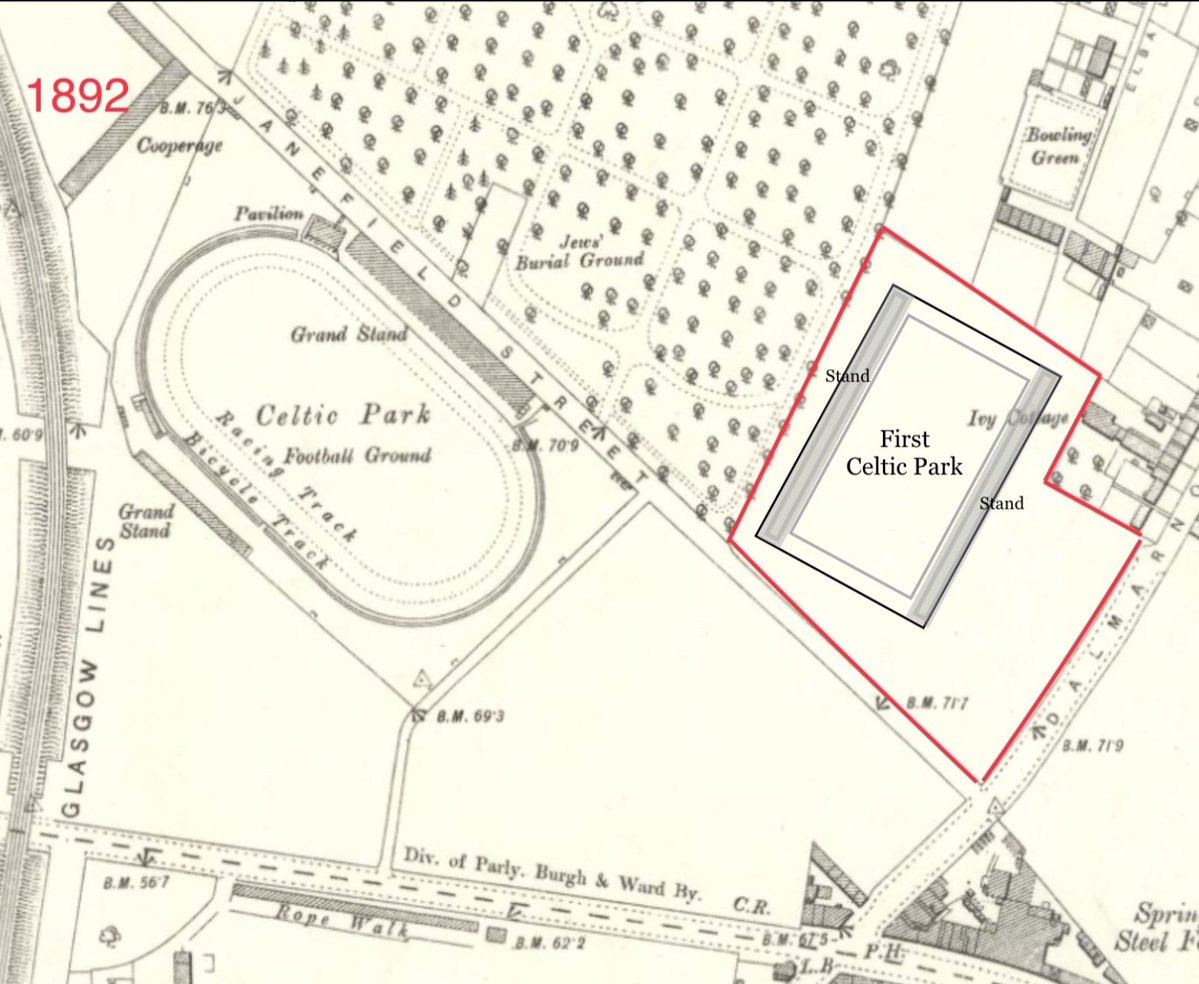
Why Scotland has never hated Jews … it was too busy hating Catholics
Old rivalry between Irish immigrants and Protestants prevented anti-Semitism
By Senay Boztas
17 October 2004
Sunday Herald http://www.sundayherald.com/45344
THERE is apparently some wisdom in the old sectarian joke: “A Scot is asked if he is Catholic or Protestant, and when he replies ‘Jewish’, the question is simply repeated … ‘a Catholic Jew or a Protestant Jew?’”
At a symposium on Jewish Settlement, Development and Identities in Scotland today, researchers will argue there has been relatively little antiSemitism in Scotland – people were too busy expending their bigotry in battles between indigenous Protestants and Irish Catholics.
Dr William Kenefick, a history researcher from the University of Dundee who will give a presentation comparing Jewish and Irish immigration, said he believes there was relatively less prejudice against Jews as a byproduct of this antipathy towards Catholics.
“It has been said that Scotland is the only country in Europe where there were no organised attacks on Jews, and although there was some stereotyping in the 1930s, it could be described more as anti-German,” he said.
“I am travelling along that route, finding that the Catholics were coming under much more scrutiny [than the Jews]. In the 1920s, the Kirk really came out against Irish Catholics, wanting repatriation for the unemployed.
“The propaganda was considerable: statistics were used spuriously and quite wrongly to suggest that the Irish Catholics were more likely to be wife beaters, more prone to be in prison, and had more infanticide in their community.”
Kenefick has compared Irish and Jewish immigration into the Gorbals of Glasgow before 1914, and his studies will be published in a book. He has also analysed oral transcripts from 20th-century Jewish immigrants in the archives at Garnethill Synagogue – Scotland’s oldest synagogue, where the conference is being held.
He has found that the embourgeoisement of the Jewish community happened far more quickly.
Despite arriving a decade after most Irish Catholic immigrants, most of the community moved out of the Gorbals into more upmarket areas a decade earlier.
They were also readily absorbed into middle-class professions, particularly dentistry and medical jobs. Another escape from poverty was by performing at popular music halls in the 1930s.
“Even in the poor south side, there was a sense that they got on,” he added. “They had their own social security network, borrowing and repaying money within the community.”
His research is supported by theories put forward by Professor Aubrey Newman, a historian at the University of Leicester. Newman, who will compare Jewish settlement and development in England and Scotland, said that, although there were fewer Jews who settled north of the Border, they did appear to benefit from the political situation.
“There was apparently more tolerance of Jews in Scotland and Glasgow because the Catholics and Protestants hated each other so much that they had no hatred left: there was not the same ferocity as there was between Irish Catholics and Scottish Presbyterians,” he said.
“Jews played a large role in public life in the city of Glasgow, for example, Michael Simons was one of the first baillies of the city council. Almost by osmosis, I realised that there were so many other antagonisms around that people didn’t have much time to be anti-Semitic: it is blindingly obvious.”
A rush of Jewish immigration to the UK happened in the 1880s, when Russian pogroms killed tens of thousands of Jews and many aimed to emigrate to America through the cheaper route of Britain, but stayed. In 1860, the UK Jewish population stood at 60,000, and by 1914 it was 380,000.
The first Jewish congregation in Edinburgh had been founded in 1816, and in Glasgow in 1823, but this “great migration” at the end of the 19th century made the most significant difference to the growth of the community.
Some people travelled on to America from the Clyde, but small communities grew in other cities and many found work in thriving Glasgow industries, such as tailoring and the emerging cigarette industry.
The older communities, Newman said, gave as much assistance as possible to newcomers: “There was an urge to see them anglicised, to see them absorbed within the wider Jewish and non-Jewish communities, to make sure that they fitted in. But one of the significant features of the way in which Jewish integration into local life in Glasgow in political and socio-economic terms was facilitated came about by the existing religious and racial tensions within the city between its two leading factions.”
Harvey Kaplan, director of the Scottish Jewish Archive Centre, said the theory deserved more investigation. “There is a lot in that,” he said. “You get the same feeling if you talk to the small Jewish community in Northern Ireland at the time of the Troubles, where they feel they were left alone.”
Dr Joe Bradley, lecturer in sport sociology and an expert in ethnic and religious identity at the University of Stirling, said: “I see this argument as viable. Undoubtedly, though, the most traditional and damaging form of racism has long been anti-Irish and anti-Catholic in nature.
“This has been present for the past 150 years in a variety of forms and still prevails in many parts of the country. None of Scotland’s other migrant groups has come near this, though racism against non-whites and latterly against Scotland’s refugee groups is clearly a problem for society.”
“One Scotland, Many Cultures (An alternative perspective)
by LiviCelt – CelticMinded.com
I am writing this article in somewhat surreal circumstances: it is currently 3.26 am. I am lying in bed. I am unable to sleep. I’m depressed. My football team has just been beaten 4-2 by their greatest rivals. At home.
Today, whilst at this game at the home of my beloved Celtic Football Club, I had the misfortune of sitting right beside the Rangers fans. For those of you who are unaware I shall try to give a very brief overview of the two clubs as this is central to understanding the point of my article. Celtic traditionally drew their support from the Catholic minority in Glasgow and from the Irish diaspora across the world, whilst Rangers are traditionally followed by the Presbyterian (Church of Scotland Protestant) majority. Celtic have, however, always been a club open to all as our greatest ever manager s faith, and the faith of many in our support testifies. Rangers, on the other hand, have remained exclusive for much of their existence for example, they had a de facto policy of not signing Catholic players until quite recently. Also, the Celtic fans have tended to vote for left of centre political parties, and have often shown their support for various oppressed peoples across the world. Conversely, Rangers fans are generally more conservative and can be characterised as both Monarchist and Unionist (with regard to Britain). The derby game between the two is often referred to as one of the most heated derby games in the world, often acting as a microcosm of the Catholic/Protestant sectarian divide that exists in the West of Scotland and the North of Ireland. The atmosphere can be poisonous.
Young Jewish football followers who grow up in Glasgow are one of the few groups that actually have a choice over what team to follow, rather than having the team picked for them by the context of their social, political or religious beliefs. When I grew up in the 90s, the Jewish support generally tended to be for Rangers as they were in the middle of the most successful period in their history (and the Jews I knew were glory hunters!). What I actually want to examine in this article is whether it is at all appropriate for Jews to support Rangers, an argument borne out my experiences at the games today.
It might come as a shock to some people that I would even propose this after all it is fairly well known in Jewish circles that Celtic fans fly the Palestinian flag and Rangers fans fly the Israeli flag. Well this is first point that I shall deal with. As mentioned previously the Celtic fans have a history of showing support for peoples in the world seen as oppressed . Whether some of us like it or not, the Palestinians are a people that are seen as oppressed in the world today. Consequently, there have been some instances where Celtic fans have flown the Palestinian flag at matches. However, this is by no means a regular occurrence it only takes one fan with a flag, and the flag to be picked up on TV for a label to stick. There is no comparison here with the number or Irish flags or even Basque flags that are flown on a regular basis.
The Rangers fans decision to fly the Israeli flag is an altogether more complicated issue. One school of thought suggests that it is merely a reaction to the Palestinian flags from the Celtic fans. However, in my opinion there is something deeper to it than that sadly, these Rangers fans actually see Israel as being right wing and extreme, and therefore something they can identify with.
You see the event that pushed me over the edge today was having to sit beside 8000 fans doing Nazi salutes towards me for 90 minutes. I m sorry but I didn t come to the football for that. My family didn t flee persecution in Europe for me to have to sit and put up with that in Glasgow in 2008. So my brother complained to the police. I m sorry sir, I understand your concerns but this is beyond my remit. It is a sad indictment of Scottish society that this behaviour is ignored and, by extension, condoned.
The Rangers fans usual response to the accusation of Nazi salutes is that it is a red hand of Ulster salute that has been mistakenly identified as Nazi; however according to the website of Loyalist FM, a pro Rangers, pro Unionist radio station in Northern Ireland, this is a complete fabrication:
The red hand salute is merely a symbol which fans embarrassingly hid behind to condone the support of Neo-Nazis within Britain s shores. It’s time to educate the uneducated, make it clear to the idiots that this mythical Red Hand Salute does not exist and it has no place amongst a Rangers support that we are extremely proud of.
Unfortunately this warning does not seem to have been heeded as the picture above confirms.
The general mindset of the Rangers fans can be summed up by one simple song that they sing: We Are The People. They see themselves as white Protestants who are superior to any minority. It is the sort of mindset which led to the despicable scenes in Manchester in May 2008, when the fans rioted during the Uefa cup final they see themselves as untouchables who can do whatever they like. When the Celtic goalkeeper blessed himself in front of them at a game last season (something that players do the length and breadth of Britain every weekend) he was cautioned by police as it could cause offence. Well, I’m sorry, but in my opinion this says more about the offended than the perpetrator. The fact that they are unable to deal with someone who is different from them speaks volume. This, after all, is a club who went 115 years without signing a Catholic player (very similar in fact Beitar Jerusalems policy today on Arab players).
At the game today they sang a horrendously racist song which suggested that descendents of the Irish potato famine should go home. One could only imagine the reaction at a Spurs game if descendents of Holocaust survivors were told to ‘go home .
I feel it is time I spoke about my feelings. I don’t understand how anyone with any sense of Jewish identity can bring themselves to support a team that finds itself tied up in such bigotry and sectarianism. The line often trotted out is that both teams are as bad as each other well I challenge anyone to point to anything that comes from Celtic fans which is discriminatory.
Maybe next time somebody thinks about having some sympathy for the mighty Glasgow Rangers as they wave Israel flags they should look a little deeper before making their decision. Jewish people should have a duty to speak up when others around them are being discriminated against. The salutes seen above are really just the tip of the iceberg.
This article was written for the ideological journal for the largest Jewish Youth Movement in the UK.
‘MY EXPERIENCES AS A JEWISH CELTIC FAN’
https://www.celticquicknews.co.uk/my-experiences-as-a-jewish-celtic-fan/
By CQN Magazine on 30th April 2016 Football Matters
THE current controversy over comments by Labour MP Naz Shah and former London Mayor Ken Livingston has opened up a welcome debate on the presence of anti-Semitism in society. It has also caused me to think deeply about my own experience as a Jewish Celtic fan.
I have been a Celtic supporter since I was 7 years old. I can still remember the first game I was taken to, we played Ajax in a friendly at Celtic Park in 2002! As a Zionist, a Jew and a Scottish citizen who opposes injustice in all its forms, there was only ever one team I could or would support: Celtic.
Outwith football I support other causes and ideals: I am anti-occupation and pro-self-determination, I believe that independence would be best for Scotland, that a Jewish state is necessary for the continued survival and progress of the Jewish people and I support a Palestinian state for the survival and progress of the Palestinian people. I don’t take those other causes with me to games.unspecified-24
Celtic is a club which rightly, prides itself on its culture of inclusivity, regardless of race and religion or political view all fans are members of the Celtic family and all are welcome. In recent years however, I have felt marginalized and excluded by a minority of my fellow fans who seem intent on using the platform our team gives us to fight political battles unrelated to football. I wish they wouldn’t do this, especially when it leads to divisions or intimidation between fans of the same club. Fortunately, the great majority of Celtic fans only express support, usually passionate support, for our team, when they watch them play.
Celtic is a club founded in Glasgow, in the wake of persecution of Catholics in Ireland. Caring about the persecuted runs deep in the veins of the club and the fans. This leads some supporters to identify with the Palestinian cause. The State of Israel was also born in the aftermath of terrible persecution and many Israelis are descendants of Holocaust survivors, while the Zionist movement was created in response to antisemitismunspecified-10 across Europe.
Choosing to fly flags, whether Palestinian or Israeli, is to take the history of both completely out of context and reduce complex realities to superficial gestures. Flying an Israeli flag at matches would probably cause anger and offence since it would be seen as supporting the actions of the Israeli government against Palestinians. Yet for many, offense is caused by flying the Palestinian flag, which appears as an expression of support for Hamas in Gaza or the actions of Palistinians who have violently attacked innocent civilians in Israel. These symbols, so glaringly out of context at a football match, can leave supporters feeling marginalised and intimidated.
The vast majority of Jews, whether in the Diaspora or in Israel, support the existence of a Jewish state in some form, even though they may not agree with the foreign or domestic policies of the Governement of Israel. Criticism of Israeli government policies are acceptable and healthy; however, there comes a point where they can cross the line into antisemitism. When Israeli Arabs such as Beram Kayal and Bibras Natkho play for the national team and Israelis of all religions and ethnicities are elected by all citizens to sit in the national parliament, it’s difficult to see how can Israel be called an “apartheid state”. We all have our own political views, our party affiliations and opinions on a range of often contentious matters, from Scottish Independence to the EU. For the most part, we leave them at home when we come to a game.
Concern for the oppressed and the persecuted is noble and worthy, but to be consistent, shouldn’t we fly the flags of Kurdistan, Tibet, the Yazidis, the Rohingyas and the dwindling Christian minorities of the Middle East, not in place of, but as well as the Palestinian flag? Or should we instead leave these flags at home and enjoy our team, playing and hopefully, winning, as we all pray they will?
This is an opinion piece written by Andrew Morris and submitted to CQN for publication. If you would like to write for CQN please email david@cqnpublishing.co.uk
1931-06-14: Hakoah 1-1 Celtic, American Tour
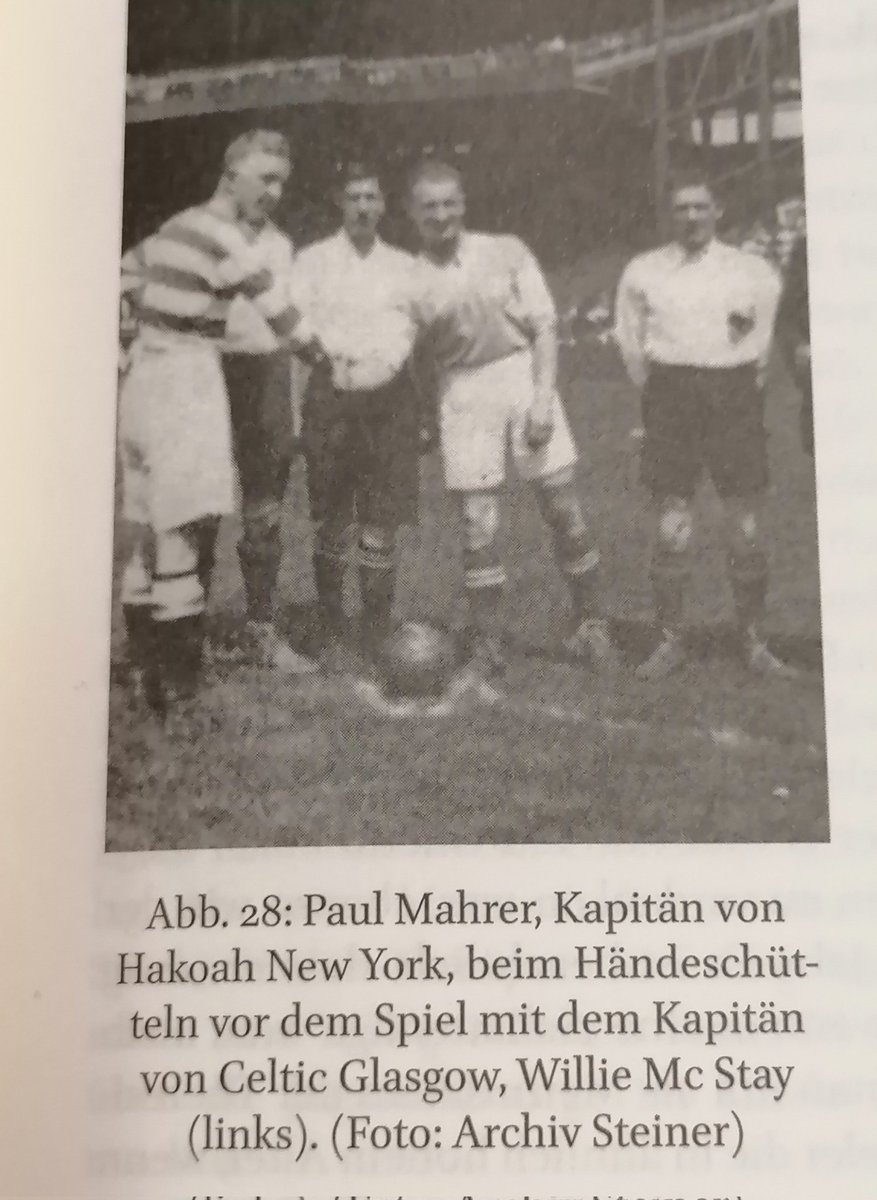
@patdon801
·
Jun 28
This 1931 photo is from “Football Under The Yellow Star” by Frantisek Steiner. The book is on the league that was organised between 1943 and 1944 in the Theresienstadt Ghetto. Mahrer survived the Holocaust although his brothers Kurt and Otto were murdered in Auschwitz. The photo is from the German version of the book. It was originally written in Czech.
